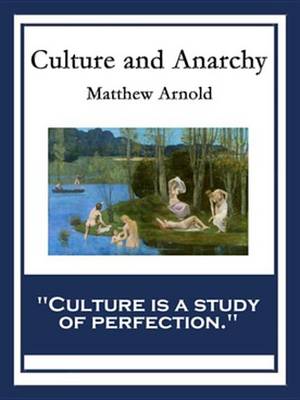Rethinking the Western Tradition (YUP)
1 total work
Manifesting the special intelligence of a literary critic of original gifts, Culture and Anarchy is still a living classic. It is addressed to the flexible and the disinterested, to those who are not committed to the findings of their particular discipline, and it assumes in its reader a critical intelligence that will begin its work with the reader himself. Arnold employs a delicate and stringent irony in an examination of the society of his time: a rapidly expanding industrial society, just beginning to accustom itself to the changes in its institutions that the pace of its own development called for. Coming virtually at the end of the decade (1868) and immediately prior to W. E. Forster's Education Act, Culture and Anarchy phrases with a particular cogency the problems that find their centre in the questions: what kind of life do we think individuals in mass societies should be assisted to lead? How may we best ensure that the quality of their living is not impoverished? Arnold applies himself to the detail of his time: to the case of Mr Smith 'who feared he would come to poverty and be eternally lost', to the Reform agitation, to the commercial values that working people were encouraged to respect, and to the limitations of even the best Rationalist intelligence. The degree of local reference is therefore high, but John Dover Wilson's introduction and notes to this edition supply valuable assistance to a reader fresh to the period.
